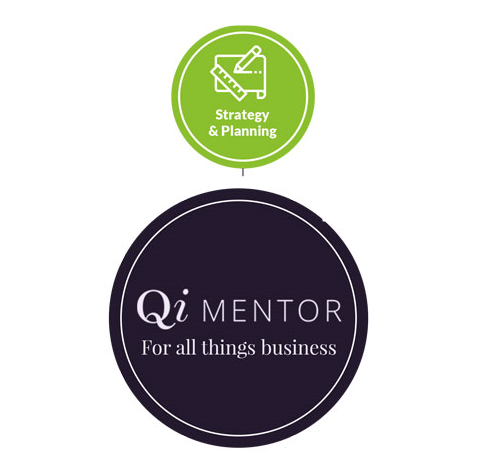Business Strategy - 9 Steps to Success
Published in blogs by QiMentor, 18th March 2021

To succeed in any venture a strategy must be carefully thought through – where are we going and how do we get there? Or as Sun Tzu put it:
“Tactics without strategy is the noise before defeat”
There are many different tools or frameworks you can use for strategy and planning; however, all the tools and frameworks share four key steps.
Step One
Analyse your current internal and external status and where you are wanting to steer the organisation.
Step Two
Develop a strategy, both a high level and organisational level strategy.
Step Three
Convert the organisational plan into an operational and action item document.
Step Four
The evaluation stage, where the evaluation of progress and the impacts on the different elements within the organisation are assessed.
However, this is not the final step, as with all plans they will change in the execution and will need to be refined and certain parts adapted or changed completely. This is natural and is something that is fundamental to success.
We can look at a particular methodology from the Balanced Scorecard Institute (BSI):
Before proceeding with the first step of the BSI Methodology it is necessary to prepare the groundwork by identifying and empowering champions and key stakeholders. The current state of previous plans must be assessed and discussed in order to develop a starting point.
1. Assessment
The current state of play, “where are we now?” is the starting point for Step One. The internal and external environments are evaluated as well as the high-level organisational strategy.
2. Strategy
Expanding on the first step, four key areas within the organisation are considered: it’s capabilities, systems and processes, customers and stakeholders, and its financials. All four are inter-related and decisions will cascade forwards and backwards. A unified strategy is critical for stability.
3. Strategic Objectives
These are the deliverables required to develop and fulfill the over-arching strategy. Taken together, these objectives will form the organisational objectives.
4. Strategy Mapping
Strategy maps allow us to analyse and gain insights into how the different objectives relate, overlap, and affect each other. The mapping will be across four major areas:
For example, a change in an internal process may reduce the overall cost of a service which can be passed onto the customer, in turn making the service more competitive.
5. Performance Measures
In order to track our progress, we must measure our performance and outputs.Organisational performance can be tracked across two areas:
6. Strategic Initiatives
Projects that are critical to the organisation can be developed, prioritised, and implemented. These initiatives are prioritised by their impact on the overall organisational strategy.
7. Performance Analysis
Developing reliable analytics using data from across the organisation will be critical in ensuring that objectives and deliverables are being addressed in the most appropriate manner.By taking corrective action based on performance analysis delays and cost over-runs can be identified and dealt with effectively.
8. Alignment
Strong and open communications strategy will allow the business and individual employees know their part in the process. Ensuring that this information cascades through correctly is extremely important.
9. Evaluation
The overall strategy is compared to real world data and the performance against plan is considered. Corrective action at this point will ensure the continued progress of the strategy, at the same time new data can point to significant improvements by re-aligning the organisational strategy to take this into account.
© Copyright 2019 QiMentor. All rights reserved. Privacy policy